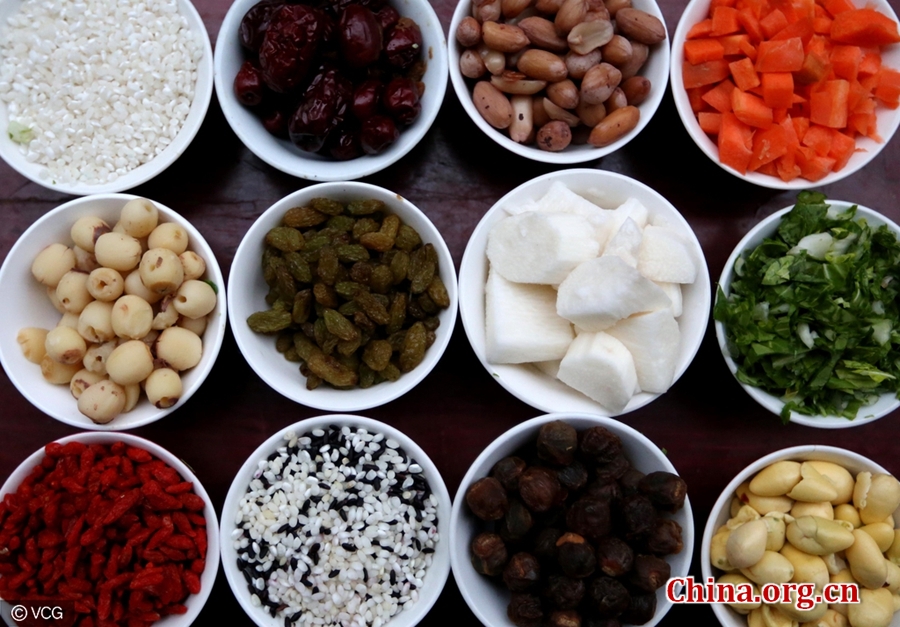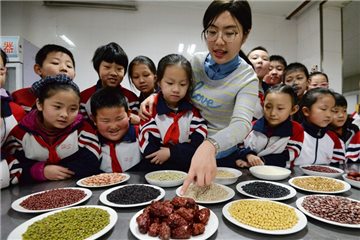From mom-made porridge to Laba Festival
china.org.cn / chinagate.cn, January 6, 2017 Adjust font size:
Editor's note: The Laba Festival, a traditional Chinese festival on the eighth day of the 12th month of the lunar calendar, falls on Jan. 5 this year. Chinese people eat Laba porridge on the day and pray for peace and good health in the coming year. A bowl of porridge made by one's mother may be the best part of someone's old memories.
|
The Laba Festival, a traditional Chinese festival on the eighth day of the 12th month of the lunar calendar, falls on Jan. 5 this year. [Photo/VCG] |
Festival origins
The Laba Festival may be traced back to the ancient Chinese custom of sacrificing game to the ancestors during the last month (the 12th) of the lunar year. Following the ritual, the participants feasted together on the sacrificial meat in an early expression of the Chinese tradition of communal eating. The festival is popularly referred to as Laji Festival (End-of-Year Sacrifice Festival), another indication of its ancient origins and association with early sacrificial rituals. Today, Laba porridge serves as a symbol of good fortune, long life and a fruitful harvest.
Legend
Eating porridge during the Laba Festival is a very old tradition. As Buddhism became integrated into Chinese society, "Laba porridge" became known as "Buddha porridge," in commemoration of the date of Buddha's enlightenment.
Legend has it that after Sakyamuni left secular life to become a monk, he meditated so deeply that he often forgot to eat. Once, when he was close to dying of starvation, he encountered a woman tending her flock. The woman saved his life by feeding him rice porridge with milk, enabling him to continue meditating and attain enlightenment on the day of the Laba Festival. Thus, the Laba Festival also became known as the Day of Enlightenment. In order to commemorate this event, every year at the festival Buddhists eat Laba porridge, also known as Buddha porridge. Many versions of the legend concerning the origins of the Laba Festival exist in different regions of China.


